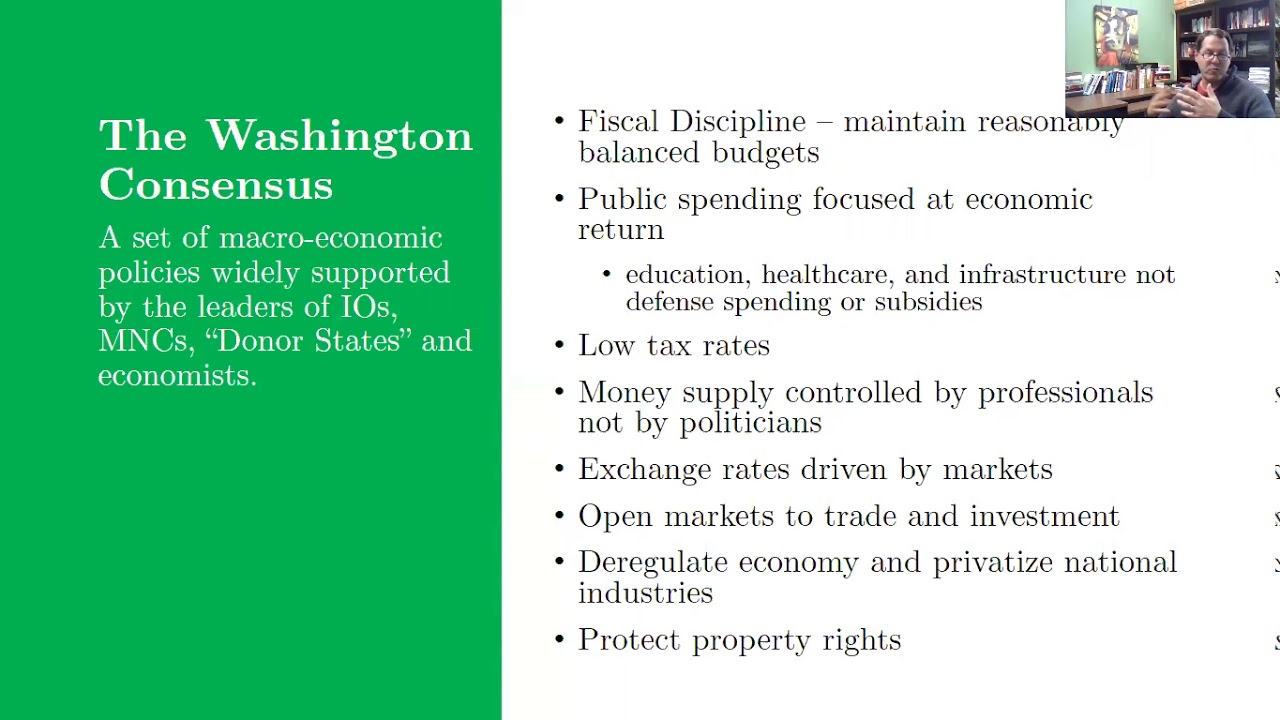V. International Political Economy.

International Political Economy (IPE) is a branch of international relations that examines the relationship between politics and economics on a global scale. It is concerned with how politics and economics interact with each other in the international system, and how they influence each other’s behavior. The following are some of the main topics covered in IPE:
- International Trade: The study of international trade involves analyzing the exchange of goods and services between countries. This includes examining the impact of trade policies, such as tariffs and quotas, on international trade flows, and the role of international organizations, such as the World Trade Organization, in regulating trade.
- International Finance: International finance refers to the study of financial systems and the flow of capital between countries. This includes examining the role of international financial institutions, such as the International Monetary Fund and the World Bank, in promoting economic growth and stability, and the impact of currency exchange rates on trade and investment.
- Development: The study of development involves analyzing the economic and social conditions of countries and regions, and the policies that promote growth and development. This includes examining the role of international aid and development programs, and the impact of globalization on economic growth and inequality.
- Globalization: Globalization refers to the increasing interconnectedness of the world’s economies and societies. The study of globalization involves examining the economic, political, and cultural factors that contribute to this process, and the impact of globalization on economic growth, inequality, and social change.
- Multinational Corporations: Multinational corporations (MNCs) are large companies that operate in multiple countries. The study of MNCs involves analyzing their role in the global economy, including their impact on economic growth, trade, and investment, as well as their influence on government policies and international relations.
- International Economic Institutions: International economic institutions are organizations that promote economic cooperation and development among countries. This includes examining the role of organizations such as the World Bank, the International Monetary Fund, and the World Trade Organization in shaping global economic policy.
Overall, IPE provides a framework for understanding the complex interaction between politics and economics in the international system, and the ways in which these factors influence global economic growth, development, and inequality.
Theories in IPE: Mercantilism, Economic Liberalism, and Neo- Marxism
In International Political Economy (IPE), there are several theories that explain the relationship between politics and economics. Some of the major theories are:
- Mercantilism: This theory originated in the 16th century and was based on the belief that a country’s wealth and power were determined by the amount of gold and silver it possessed. Mercantilists believed in protectionism and advocated for the state to regulate trade to ensure that exports exceeded imports, thereby ensuring a positive balance of trade.
- Economic Liberalism: This theory is based on the idea of free markets, open trade, and the free flow of capital. Economic liberals believe that the market should be left to its own devices without government intervention. They argue that free trade benefits all parties involved, leading to economic growth and prosperity.
- Neo-Marxism: This theory emphasizes the role of class struggle and the exploitation of the working class by the capitalist class. Neo-Marxists argue that the international economic system is inherently unequal, with developed countries dominating underdeveloped countries. They also believe that economic globalization has led to the erosion of the state’s ability to regulate and protect the interests of its citizens.
These theories are not mutually exclusive, and each has its own strengths and weaknesses. Policymakers and scholars often draw upon insights from multiple theories to understand complex economic and political issues.
Theories of Imperialism, Dependence and Interdependence discourse
Hypotheses of dominion, reliance, and relationship are undeniably connected with the field of Global Political Economy (IPE).
Colonialism alludes to the course of areas of strength for an or power applying its control or impact over more fragile states or domains, frequently through military or financial means. Government is frequently connected with imperialism, which includes the immediate occupation and control of regions by an unfamiliar power.
Reliance hypothesis, then again, contends that the immature nations of the world are subject to the created nations, and that this reliance propagates their underdevelopment. As per this hypothesis, the created nations have made a worldwide monetary framework that benefits them to the detriment of the immature nations, and that the immature nations may have the option to create in the event that they can break liberated from this arrangement of reliance.
Association hypothesis, which arose during the 1970s, contends that all states are interconnected and related on one another monetarily, strategically, and socially. As indicated by this hypothesis, the activities of one state can have far reaching influences on different states, and that participation and coordinated effort between states is important to address worldwide difficulties, for example, environmental change, psychological oppression, and financial shakiness.
In IPE, these hypotheses are utilized to make sense of different financial and political peculiarities, like the connection among created and immature nations, the job of worldwide companies in the worldwide economy, and the effect of globalization on public power.